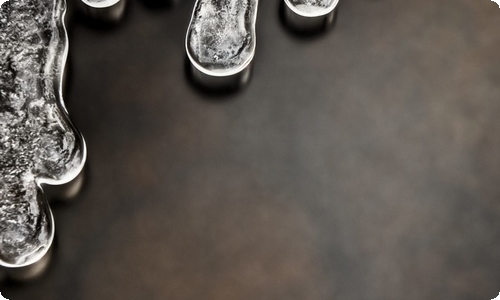
实用的旅行英语作文3篇
在学习、工作、生活中,大家都跟作文打过交道吧,作文是人们把记忆中所存储的有关知识、经验和思想用书面形式表达出来的记叙方式。一篇什么样的'作文才能称之为优秀作文呢?下面是小编精心整理的旅行英语作文3篇,仅供参考,希望能够帮助到大家。
旅行英语作文 篇1
There are a lot of places I've been to, but I think the most interesting place is Hainan Island.
There is a fresh air, beautiful scenery and rich products. It is a famous tourist resort in China.
There are some very distinctive fruits in Hainan. Coconut trees are everywhere, covered with large and small coconut mango; some small, some yellow, sometimes orange, some green, some color; areca has a strange eating is first put into the mouth, then spit it out......
Hainan clothing and our side is not the same, where people are wearing brightly coloured clothes of the island. The weather, plants, environment and seasons in Hainan are also different from us.
Sanya in Hainan is a place of fun and beauty. Sanya's Yalong bend is the world's most famous Bay of the world. In the morning, the sun is shining yellow on the beach, particularly moving; at noon, the burning sun, the beach is like a mirror reflecting sunlight back, sea blue, like the sky; in the evening, the water became dark blue, yellow sand loess soil.
The sand of Yalong Bay is very thin and thin. We can play a lot of games on that beach. Last time, I had a long and magnificent castle on the beach with my father. A sea breeze suddenly increased, roaring waves waves over and over again to us a castle destroyed.
The ends of the earth are also famous in Sanya. "Tianya" is carved on the cliff like stone, and the front is a square like open beach. The words "Cape" are far from the corner, so many people can't find it. It takes a lot of effort to find the word "Cape", either climb up the stone or go down to the deep water. If you are tired you can lie on the shore of the couch, basking in the sun, the sea breeze blowing, at Coconut Juice, is really a rare treat.
Hainan is a place of beautiful scenery, fresh air and rich products.
旅行英语作文 篇2
the past ages of man have all ben carefully labeled by anthropologists. descriptions like ‘palaeolithic man’, ‘neolithic man’, etc., neatly sum up whole periods. when the time comes for anthropologists to turn their attention to the twentieth century, they will surely choose the label ‘legless man’. histories of the time will go something like this: ‘in the twentieth century, people forgot how to use their legs. men and women moved about in cars, buses and trains from a very early age. there were lifts and escalators in all large buildings to prevent people from walking. this situation was forced upon earth-dwellers of that time because of their extraordinary way of life. in those days, people thought nothing of traveling hundreds of miles each day. but the surprising thing is that they didn’t use their legs even when they went on holiday. they built cable railways, ski-lifts and roads to the top of every huge mountain. all the beauty spots on earth were marred by the presence of large car parks.’
the future history books might also record that we were deprived of the use of our eyes. in our hurry to get from one place to another, we failed to see anything on the way. air travel gives you a bird’s-eye view of the world- or even less if the wing of the aircraft happens to get in your way. when you travel by car or train a blurred image of the countryside constantly smears with the urge to go on and on: they never want to stop. it is the lure of the great motorways, or what? and as for sea travel, it hardly deserves mention. it is perfectly summed up in the words of the old song: ‘i joined the navy to see the world, and what did i see? i saw the sea.’ the typical twentieth-century traveler is the man who always say ‘i’ve been there,’ you mention the remotest, most evocative place-names in the world like el dorado, kabul, irkutsk and someone is bound to say ‘i’ve been there’—meaning, ‘i drove through it at 100 miles an hour on the way to somewhere else.’
when you travel at high speeds, the present means nothing: you live mainly in the future because you spend most of your time looking forward to arriving at some other place. but actual arrival, when it is achieved, is meaningless. you want to move on again. by traveling like this, you suspend all experience; the present ceases to be a reality: you might just as well be dead. the traveler on foot, on the other hand, lives constantly in the present. for him traveling and arrving are one and the same thing: he arrives somewhere with every step he makes. he experiences the present moment with his eyes, his ears and the whole of his body. at the end of his journey he feels a delicious physical weariness. he knows that sound, satisfying sleep will be his: the just reward of all true travelers.
旅行英语作文 篇3
Several days ago, my family went to Mountain Halla in South Korea. We took flying there. There are a lot of trees around the mountain, and clouds around half of the mountain. When we walked into the mountain, we could hear nothing except for birds. We could see strange stones and water from the spring. The day was sunny, we could climb the moutain quickly. We got the top of the mountain within two hours. Nobody felt tired but very happy. There was beautiful. In the afternoon, when we dicided to go back, we found it was difficult, we must be careful. Luckily, we got ground without nothing happened over four hours, at that time, we all felt tired, but we thought it was worthy to do it.



![英语作文[优秀5篇]](https://img.puzw.com/upload/2612.jpg)
![[必备]学英语作文6篇](https://img.puzw.com/upload/7170.jpg)